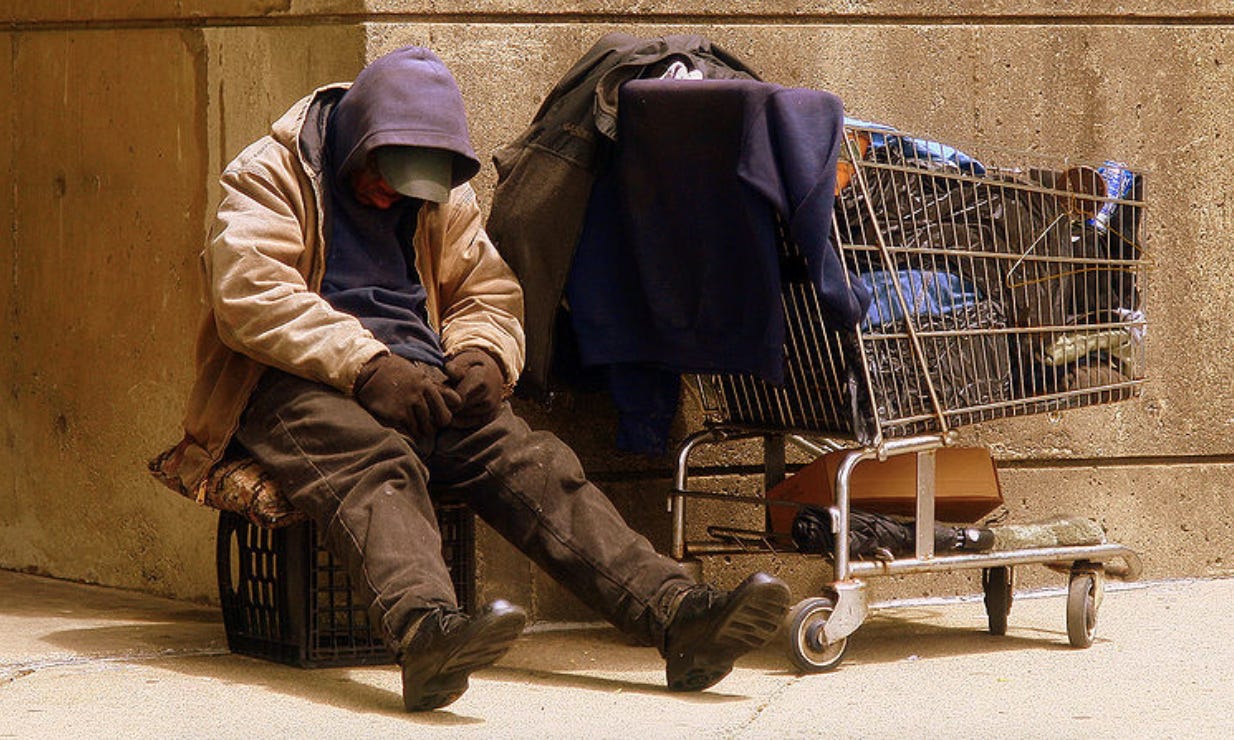Landlords Killed 10,000 People in 6 Months
Canceling rent will stem the outbreak and save lives
In a July issue of his fantastic newsletter Welcome to Hell World, Luke O’Neil took us inside an eviction courtroom in Oklahoma where landlords were asking a judge for permission to throw people who lost their jobs due to the pandemic out of their homes, during a pandemic when people are being asked to stay in their homes.
What stood out to me the most wasn’t just the act of landlords evicting tenants, but the cold, brutal efficiency of the eviction machine. There’s just no room in the legal process for judges to consider anything other than “evidentiary issues” or “evidentiary concerns” with the landlords’ argument that they’re behind on rent.
Compassion has no use for the robotic nature of the swinging gavel and the assembly line of people lining up one by one to, as Twitter user @TobyPinder wrote, have “nerds read spells at you before taking your stuff without force.”
As it turns out, eviction proceedings like these led to more than 430,000 positive Coronavirus cases throughout the US between March and September, according to researchers at UCLA, UC-San Francisco, Johns Hopkins University, Boston University, and Wake Forest School of Law. Of those 430,000+ cases, roughly 10,700 people died from Covid-19 complications. That’s more than three times the number of Americans killed on 9/11.
In a report published Friday, CNBC noted that the time period in which the study was conducted came before the current Covid spike that’s currently gripping most of the US right now. People being forced out of their homes were needlessly put in close indoor contact with others, which of course led to the virus spreading rapidly:
“When people are evicted, they often move in with friends and family, and that increases your number of contacts,” said Kathryn Leifheit, one of the authors on the research and a postdoctoral fellow at the UCLA Fielding School of Public Health. “If people have to enter a homeless shelter, these are indoor places that can be quite crowded.”
To best understand the direct impact that evictions continuing in a state has on the spread of the coronavirus, the researchers controlled for stay-at-home orders, mask orders, school closures, testing rates and other factors. The study period was from March to early September, before the most recent spike in cases.
While 10,000 deaths is a staggering number, it’s just a preview of what’s to come if the status quo continues unabated. The eviction moratorium the CDC put in place will expire at the end of the year. According to Bloomberg, more than 18 million Americans are behind on rent and mortgage payments, and as many as six million Americans face eviction in January of 2021. It doesn’t take a math genius to see that a lot more than 430,000 people will get the virus if millions of Americans lose their housing all at once.
(A homeless veteran in Boston. Photo by Matthew Woitunski/Wikimedia Commons)
The wildest part about all this is that the 10,000+ deaths and what could be tens of thousands more deaths were and are all preventable. America chooses to commodify basic needs like housing and healthcare and make essential resources another opportunity for rich people to profit, and that commodification creates the conditions that lead to a deadly pandemic reaching out-of-control rates of spread. Nobody should have to die so landlords can make money. And nobody should have to die because banks are pressuring landlords to keep up with mortgage payments.
A new administration is taking office in January. I’ll withhold my pessimism for now, though that’s not easy given the current outlook of the incoming Biden cabinet. But any stimulus bill that doesn’t include the cancellation of back rent, personal stimulus checks, retroactive monthly payments, and relief for renters and mortgagers is not good enough.
It’s also imperative that workers be paid to stay home and businesses paid to stay closed, and that all of this be included in one bill. Joe Biden will only have the political capital to pass one bill, especially if the Senate stays in Republican hands after the Georgia runoff elections on January 5.




